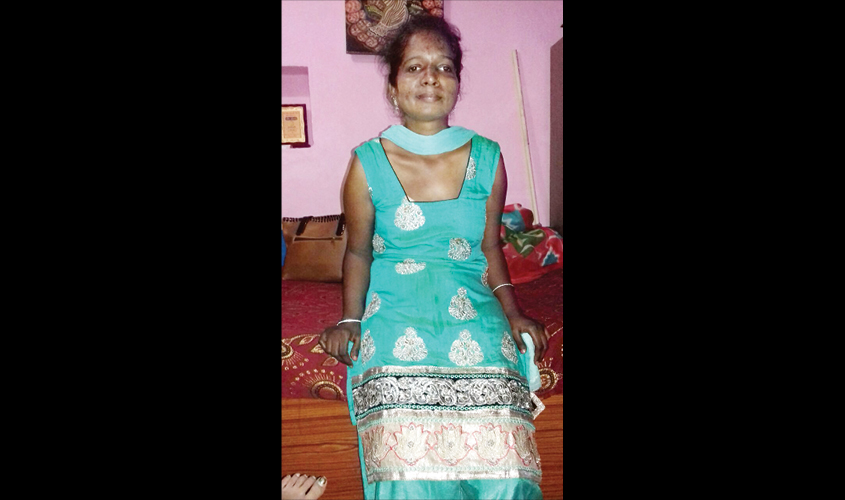Persons with Disabilities Act 2016 brought the private sector in its ambit and focused on accessibilities.
The rights and privileges guaranteed under the new Disability Act have failed to reach its targeted beneficiaries because of government failure to raise awareness about the same, say the specially-abled. Although the Act provides for 4% reservation of jobs for specially-abled persons in public and private sectors, the average employment rate among this group remains a dismal 0.28% in the private sector and 0.54% in the public sector. Many people who are specially-abled also complain that they don’t get the desired cooperation from the authorities, who are sometimes not aware of the rules and regulations in place.
Nirmal Rajarora, a visually impaired 35-year-old said she was once barred from writing an examination despite her application being shortlisted earlier.
“I had applied for a job opening at a post office, but on reaching the examination centre, I was told that I could not sit for the test as the vacancy was not for the visually impaired,” said Rajarora.
She did not get any answer from the authorities to her question why her application was accepted if the post was not for the visually impaired. She has been trying to secure a government job unsuccessfully for the past two years. “We need equal opportunities in terms of education and employment,” she said.
Rajarora said that she applied for different jobs over the years but was always rejected for some reason or the other.
A report by Diversity and Equal Opportunity Centre says that there is a wide gap between the employment rates of people who are with and without disabilities. This has resulted in the government’s target to bring down unemployment among disabled people, not being achieved.
Rajarora is now running a blind welfare association called “Deep Welfare Association” in Subhash Nagar in the national capital. It is actually a small shed under which seven to eight visually impaired students study.
The shed is funded by various people who contribute small sums of money, which is not enough to run the association. Gulshan, who is in his late 30s, is the caretaker of the shed and has been associated with DWA for the past six months.
Hard of hearing, his vision is limited to one eye. “I used to work in a factory that manufactured books, but unfortunately it shut down a year ago,” he said. He too did not get any help from the authorities in finding a job after he completed his education. Consequently, he worked at small places to earn his livelihood.
“I have been doing odd jobs. I set up a phone booth and earned some livelihood, but I have never actually received any kind of help from the government,” said Gulshan.
On 16 December 2016, the Lok Sabha passed “The Rights of Persons with Disabilities Bill, 2016”, replacing the existing Persons with Disabilities Act, 1995. The Act implemented and changed various things, including increasing reservation in government establishments from 3% to 4% for the disabled. Rati Misra, Strategic Relations Director of Samarthanam Trust for the Disabled, called the 2016 Act a “game changer”. She emphasised that the Act, “for the first time, has brought the private sector in its mandate and focused on compulsory accessibilities.”
However, she added that even though the rules of the Act were already in play, not many people were aware of it. This not only creates miscommunication among people and the authorities, but also snatches away opportunities from people like Rajarora and Gulshan.
“The problem is that there isn’t much awareness about the Act. People with disabilities themselves are not aware of it and, hence, are not able to push for its implementation. It is important to make people aware of it,” she added.
Meanwhile, Rajarora called the rejections “demotivating” and said that the morale of the students living in the shed get affected when they hear similar stories from their friends.
Deep Welfare is a home to many students, one of whom is Mahesh, who belongs to Lucknow. He is pursuing his BA from Delhi University and is in his final year of college.
Visually impaired, Mahesh wants to pursue a Masters degree. He commended his college for the curriculum but said that he was not getting any help from the authorities when it comes to job opportunities.
“We have to look for everything on our own,” he said.
Rati Misra further pointed towards deep rooted prejudice among employers.
“Different sectors are still not ready to accept people with disabilities. We have typecast them in a certain role, for
example, a person with visual disability will be very good
for jobs related to telephones. So, (according to these employers) the best kind of job for these people will be a call centre.”
Misra said the best thing both the government and others can do is to provide good education and equal job opportunities to disabled people.
“We should get better access to education and job
opportunities. We shouldn’t lag behind because people think we are incapable. We can take care of ourselves,” said Nirmal.

